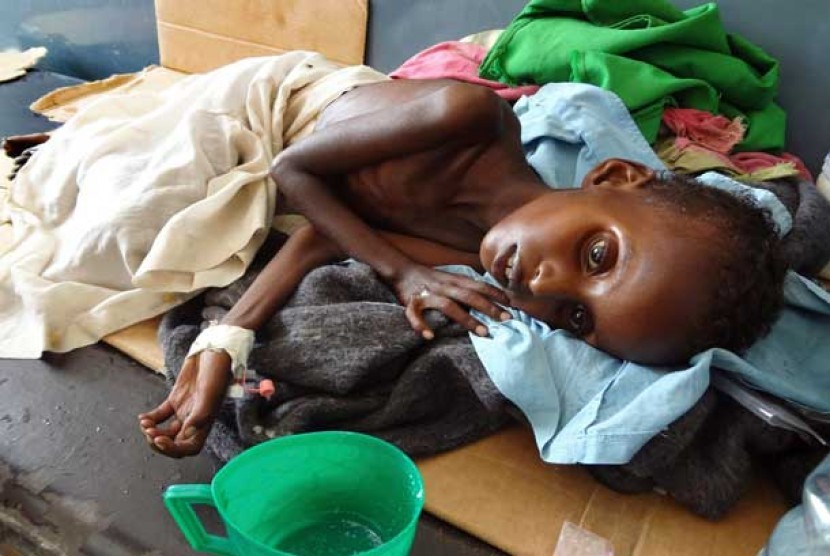REPUBLIKA.CO.ID, NAIROBI -- Senior government officials and nutrition experts as well as civil society organizations from East Africa on Monday called for concerted efforts to end malnutrition in all its forms on the continent.
The officials and experts, who met in Nairobi for the release of the global report on nutrition, resolved to create a political environment for reduction of malnutrition and ensure improved coverage of high-impact nutrition interventions.
Speaking at the launch of the Global Nutrition Report 2015 (GNR) and the GNR Africa Brief, Kenya's Principal Secretary for Health, Nicholas Muraguri hailed the progress achieved so far, but called for enhanced collective action from all stakeholders including government, donor organizations and the private sector, to endeavour to end malnutrition entirely by 2030.
"Every child in Africa has a right to basic nutrition, which if properly implemented at all levels, could reduce the levels of associated illness, incapacity and premature death," Muraguri said.
According to the report, progress in tackling malnutrition in East Africa, and on the continent as a whole, is mixed with both encouraging progress as well as shortcomings in evidence.
Only one country, Kenya, is on course to hit all 5 of the World Health Assembly nutrition targets and Ghana is on course to hit 4. Factors of success include a combination of government commitment, effective nutrition programmes, and general poverty reduction.
Read: UN: Hunger crisis hits northen Mali amid insecurity, violence
Other countries, such as Uganda and Burundi, as well as Algeria, Benin, Liberia, Swaziland and Zimbabwe, are making significant progress, being on track for three of five indicators.
It also reports that in Uganda the rate of child stunting (where children are too short for their age from under nutrition) has fallen from 48 percent in 1988 to 34 percent in 2012, and Tanzania reduced its rate from 44 percent to 35 percent in the ten years to 2014.
The experts agreed that despite the recent progress in ending malnutrition with a number of bright spots across the continent, it remains a major barrier to development in many African nations.
The participants resolved to encourage sectors supportive of nutrition improvement to become active drivers, implementing policies to create healthy food environments, and allocate more funding to scale up nutrition actions.
Kenya's Head of Nutrition and Dietetics Unit, Gladys Mugambi called on the national and county governments to invest more resources in nutrition, in order to reverse the malnutrition trends.
"While Kenya requires more than 700 million U.S. dollars to implement her five-year National Nutrition Action Plan, the sad reality is that nutrition is scarcely featured in the national and county budgets. We therefore must prioritize nutrition to save millions of children who cannot reach their full potential due to malnutrition," Mugambi said.


